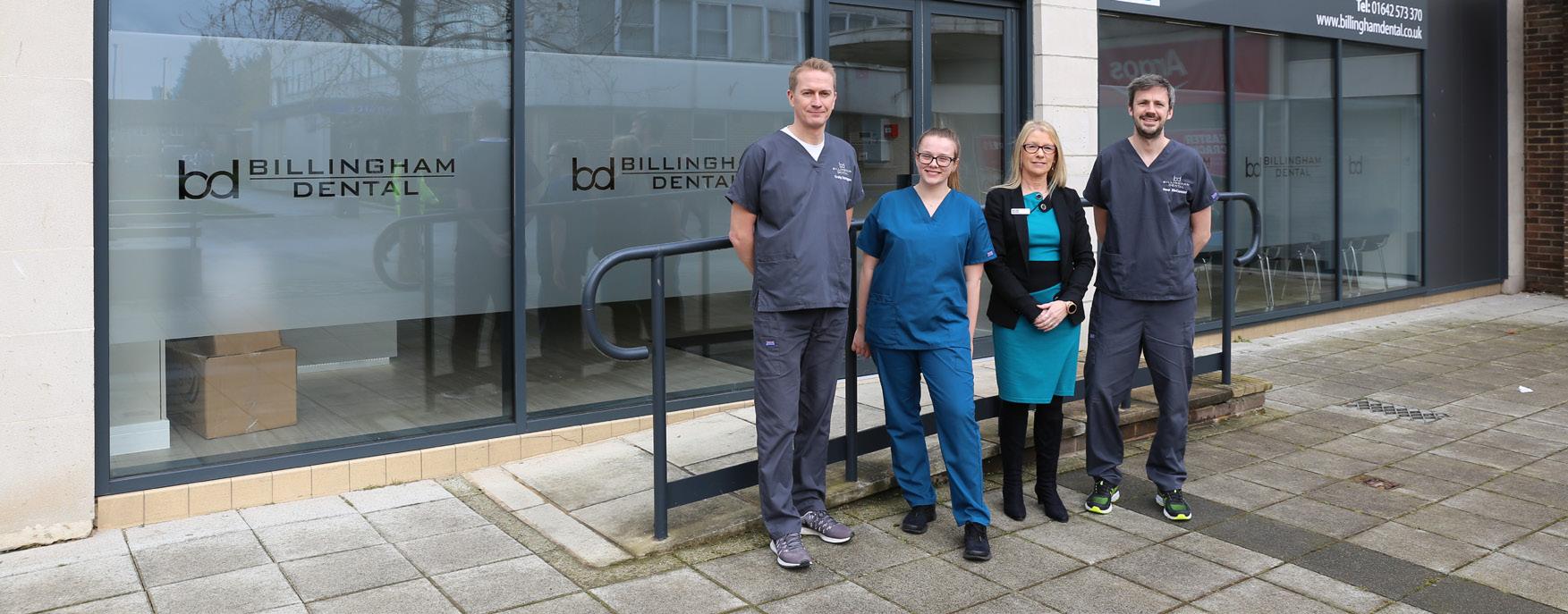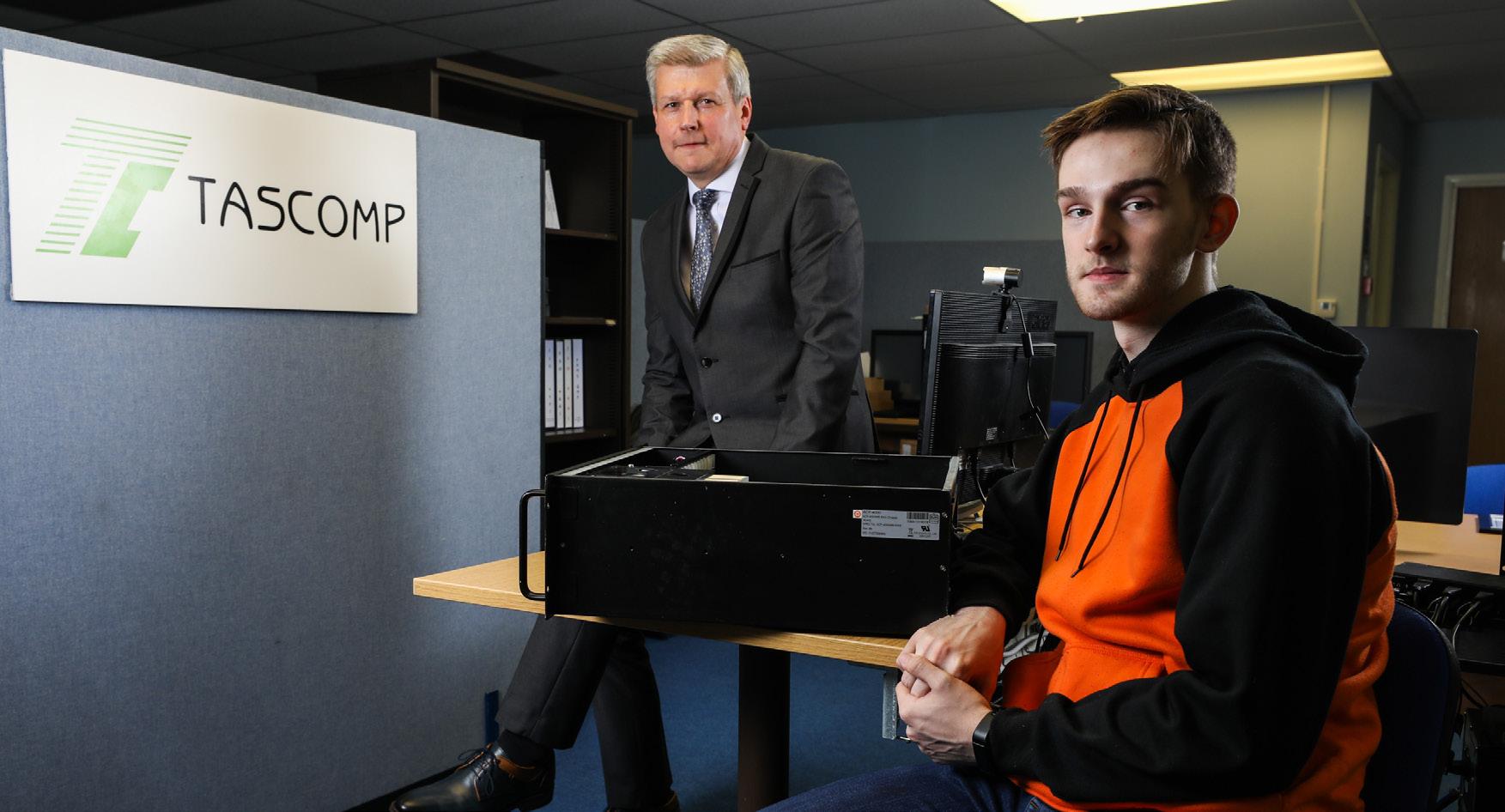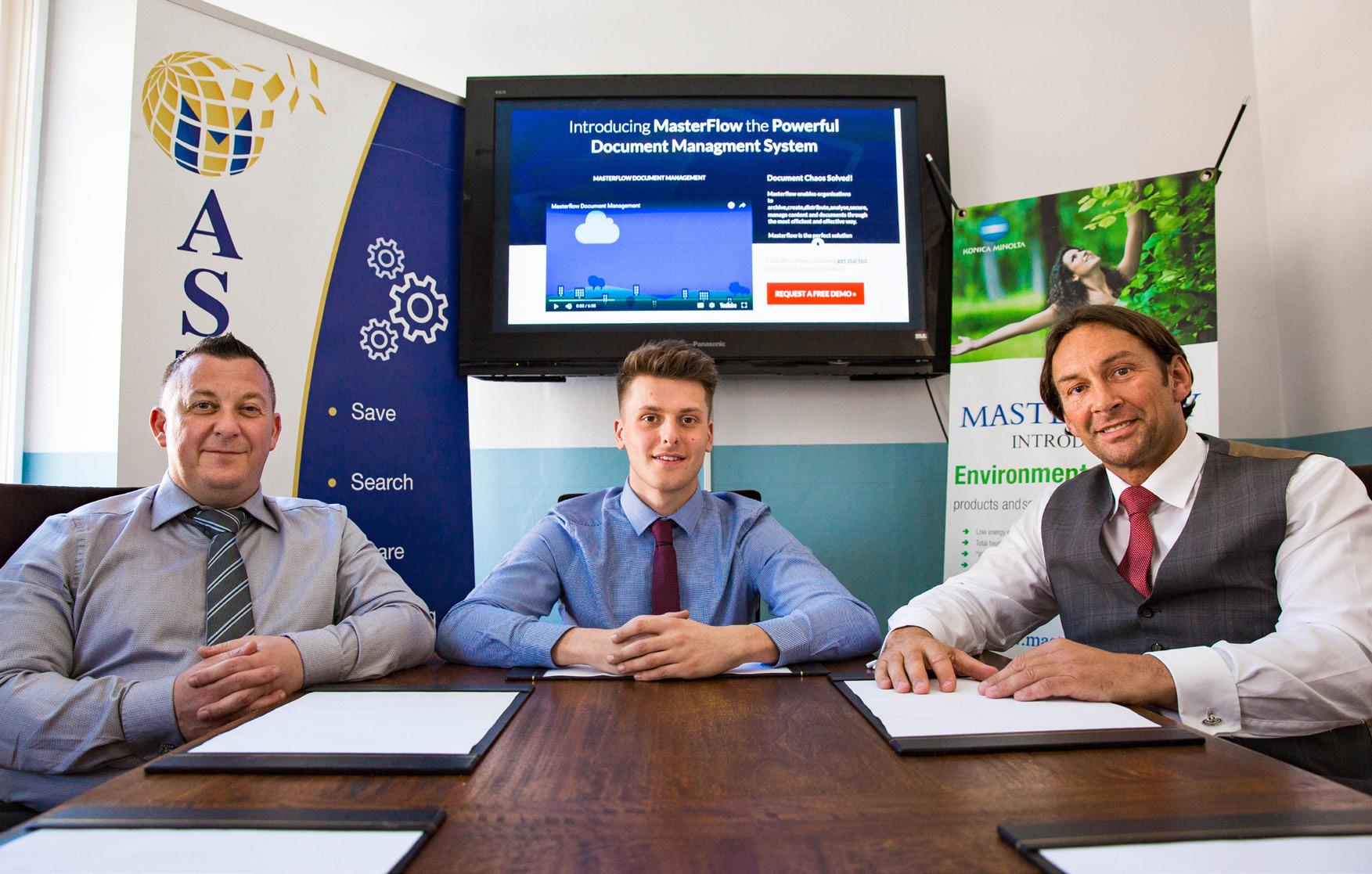Employers Guide to Work Placements Inspiring the workforce of tomorrow and developing your business
We would like to thank you for expressing an interest in offering a work placement opportunity within your business to a student undertaking a course at Middlesbrough College Group. Without employers like yourself we could not offer students essential industry experience. The opportunity you offer is invaluable in shaping the talent of the future. Contents 3 Which placementworkis right for you to offer? 4 Preparing for your placement student 6 Benefits to your business 8 Key responsibilities of all placementindustry parties 10 Our responsibilities 12 The responsibilitiesstudents’ 14 Answering commonly asked questions 16 Taking precautionsnecessary 17 placementsstudentsSafeguardingonwork 18 Essential information Our focus is to equip young people with the skills, training and experience to progress into their chosen career. Thank you for choosing to work with us, for supporting our students – we couldn’t do it without you. Work placements rely on a strong partnership between the employer, the College and the student to ensure that students gain the skills and experience necessary to shape their future careers, whilst at the same time giving employers access to future employees should they wish to offer full time employment or an apprenticeship at the end of a Thisplacement.handbook aims to provide you with information about the work placement programme, and what is expected of you as an employer. Discover our work opportunitiesplacement 01642 333 344 • email. placements@mbro.ac.uk2
Short work placements can vary from a few days to several weeks, and this time can be offered as a block week or specific set days over a few weeks. These work placements offer valuable experience in an industry related to the student’s course or chosen future career. Activities may include shadowing team members across a range of different roles within the company, or specific tasks working within one team.
We aim to ensure that all Middlesbrough College Group students have an opportunity to undertake high-quality work-based learning as a part of their study programme, this is where you come in. For some students undertaking a work placement is vital to ensure that they complete the course. Work placements can vary in length and design depending on both the employer and student’s needs. It is up to you as an employer to decide what tasks and projects you would like the student to undertake, our students can do what anyone else can in a job role - as long as they are trained and properly supervised.
Much like short work placements, T level industry placements can be available via a mix of day release and block weeks, providing you with an opportunity to find solutions for entry-level skills shortage whilst developing future talent for your business and an opportunity to capitalise on new ideas from a fresh perspective.
Short work placements
Which work placement is right for you to offer?
3 Work placement types:
Projects These are negotiated pieces of work with an employer, either group or individual, usually carried out in the workplace during term time. Where a project is undertaken, we do ask employers to provide a brief and to agree working methods and timescales with a member of staff prior to commencing.
3
T Level placementindustry T levels are a new two-year qualification for 16-19-year-olds designed with employers. Each level programme includes a 45-day work placement as part of the course. By offering a T level work placement it will help you and your business develop young people for the future whilst providing you with access to some of the brightest talent entering the market. A T level qualification is equal to 3 A Levels, and will begin to replace vocational courses to become a leading qualification for school leavers.
Preparing for your placement student
We expect employers to provide an engaging work placement for a student on a course directly relevant to their industry or sector. For industry placements of 45 days this can be achieved in partnership with another employer if needed, as long as mutual objectives are agreed upon and worked towards. The structure of the work placement will take in to account the needs of the employer, Middlesbrough College Group and the student. Students are usually placed within term time but with prior agreement can commence and continue during academic holidays. The intention of a work placement is that it should be industry specific. Learning objectives will be agreed with the College, student and employer before the placement commences. All tasks asked of the student should work towards completing these agreed objectives.
Students must be provided with a safe working environment, where they feel confident to develop their technical skills and knowledge under supervision of the employer. The student must have a direct line manager, who they can go to for support, advise and progress checks. Once the placement is complete, we will ask you to provide a reference giving indepth feedback on how goals were met and the commitment of the student, to help them identify future areas they need to work on to develop.
Try to make the work placement...
Interesting challenging:and Help your student develop a range of new skills Varied each week: Repetitive tasks can be demotivating, set them new tasks to challenge their skills and knowledge
Practical and hands on: The purpose of a work placement is so the student can learn through hands on tasks in the workplace
Realistic to the student: Giving students a task too complex without support will not aid their development Supervised until competent: Students must be trained and supported until they feel confident to complete the task independently Reflective of the industry: Give your student the chance to experience tasks reflective of the sector, so they can develop skills in their chosen industry
Both work placements and industry placements offered by Middlesbrough College Group provide an opportunity for all young people to access work experience to help kickstart their careers. This also presents an important opportunity for businesses to set themselves apart in the market by recognising the importance of concepts such as ‘shared value’ and ‘responsible businesses. There are many direct and indirect benefits for employers by introducing work placements into their business strategy, we have listed some of the business gains below. Short benefits
term
Develop your workforce with the skills you will need in the future
Offering work placements is good branding for your companyYoungpeople bring a whole new energy and perspective Offering work placements is a great recruitment strategy Work placements benefit your whole industry!
An extra resource for your current projects utilising students who are developing skills relevant to your business or industryStudents provide your employees with the opportunity to manage and mentor an individual or team Students bring fresh creative ideas to the table; this is an opportunity for you to take on board and develop their ideas
Encourage the next generation to work in your sector
Benefits to your business
An opportunity to share with stakeholders how your business has supported local young people into industry therefore improving their chance of employment
01642 333 344 • email. placements@mbro.ac.uk6
Long term benefits
Solve common business barriers Resolve entry-level skills shortagesDevelop brand values and culture Shape the direction of your business Improve recruitment cost effectiveness retentionIncreaserates
01642 333 344 • email. placements@mbro.ac.uk8
Key responsibilities of all placementwork parties
Students will be asked to record their hours whilst at the same time we will ask you to confirm the hours they have recorded are correct, in most cases this will be done electronically, further details will be provided when setting up the placement.
Prepare in advance: Prior to the students first day of work, provide them with joining information, including how to get to the place of work, working hours, lunch arrangements and other workplace expectations such as dress code, acceptable language and mobile phone usage. This should be included as part of the job description which will be completed with a member of the Work Placements Team.
Your responsibilities
For work placements to work well for everyone involved, everyone needs to play their part. This section brings together valuable learnings and identifies clearly what each party needs to be responsible for.
Arrange an induction: Whilst on a work placement, we ask that the student is treated as a regular employee of your business. As well as being allocated a line manager/mentor, the student should undertake appropriate induction for their new role. This could include: A tour of the workplace; introductions to relevant staff; any necessary training; health and safety arrangements; safeguarding procedures, fire precautions and emergency evacuation arrangements; and how to report accidents, incidents and unsafe conditions. Monitor attendance: It is essential that you inform us if the student’s attendance or engagement levels are unsatisfactory, please contact your work placement coordinator if the student: has unexplained absence from the workplace, does not return from a break, is not making progress or if you wish to end the placement early.
To provide the student with the most useful and seamless work placement possible, you must: Describe the role: We ask that you put together a clearly worded description of the organisation, the role on offer and what you are looking for in a student. It is important you are honest about the industry experience you can offer, so the expectations of the student are met. Don’t be afraid to encourage students to take ownership and independence over their work, these are the skills they should gain from an work placement. This helps us select the best student to fit your work placement role.
Provide feedback questionnaires: We will ask you to provide feedback for each student at the end of every placement via an electronic feedback form. Every week whilst the placement is running, you’ll also receive an attendance verification link to an online form asking you to verify the number of hours the student has logged that week.
Prepare the student: We will prepare the student to enter the workplace by undertaking training with them on professional etiquette and expectations and by providing general health and safety information, giving guidance and additional information to students with special educational needs. We will liaise with you beforehand to ensure the student is equipped with everything they need, including PPE, materials and any industry specific mandatory qualifications etc. required for the role.
Students will be provided with the means to record their hours, activities and reflect on their own progress whilst undertaking a work placement. In nearly all cases this will be electronically via their student passport. We actively encourage them to share with you their reflections, please do not hesitate to ask if they are not forthcoming.
Regular contact with the employer: We will keep in contact with you throughout the work placement to ensure the student is attending work and to answer any queries you may have.
Regular progress meetings: We will organise an agreed schedule with you of regular progress meetings. For the T level work placement provision, this will include an initial visit, mid and end assessment review. This helps to record the progress made by the student(s).
It is important that Middlesbrough College Group ensure both the employer, and the student, are getting the most out of their work placement. It is important to regularly check progress and to regularly check all parties are happy with the progress being made.
Our responsibilities
The student’s responsibilities:
We expect students to agree a set of learning objectives to work towards whilst undertaking work placement. For T Level industry placements these will be agreed with both you and a member of the Work Placement Team before the start of the Theplacement.student will also be required to sign a workplace learner agreement which further details their responsibilities.
Before starting their placement, all students will be prepared for working life by their tutors and team within the College. During their time on placement with yourself they will be expected to: Set clear objectives:
We expect students to fill in their electronic logbook as a minimum weekly, to track their activities, learning, highlights and progression. Students are informed that the employer will be asked to confirm this is a true record.
Track progress throughout placement:
Maintain professional standards: We expect all students to maintain professional behaviour, a positive attitude, display a positive work-ethic and be an active member of your team throughout their work placement.
For some courses, such as T Level industry placements, students must attend both a mid-point and final review session to check in on progress and reflect upon what they have learnt during their work placement.
Students should attend regular one to ones with both their line manager and staff at the College, to discuss progress and communicate any problems should they arise.
Answering commonly asked questions:
Students will undergo preparation before coming to you, and clear responsibilities, working hours and other workplace expectations.
What support will I receive?
Do I need to pay the student?
We will support you with the set-up of the placement, whilst dealing with the administrative side and finding you the right student. Once the placement begins, we will be there to support both you and the student throughout, whilst continuing to improve the experience had by both parties if necessary.
No. All legal, health and safety, insurance and other documents will be given as templates, pre-filled where possible, to minimise your workload and the amount of paperwork required, in addition to any internal processes you will need to complete as a business. Where possible we are striving to use electronic methods to save time and improve efficiency. How can I balance this with core business activities?
Students are not entitled to a salary as the placement is forming part of a course of further education. There is no legal requirement or expectation that students will be paid. However, you can pay the student should you wish to, or support the student with their travel and subsistence costs.
11
Short work placements typically involve a student shadowing you for 1 or 2 weeks. They are mostly there to observe and experience a first taster for the world of work. However, work placements will be for a minimum of 315 hours (45-50 days on average), with students studying a related course meaning they will have relevant skills and knowledge that enable them, after a period of induction, to add value to your business.
Will there be lots of paperwork?
How are work placements different to short work placements?
For industry placements this is outlined in the work placement agreement, which is signed by all 3 parties before the placement begins. You should agree with your student what their goals and responsibilities are for the placement at the start and monitor their progress towards these. Given the opportunity and some initial support, they should be able to add value to your regular activities.
How can I make sure I get suitable students?
You can work with Middlesbrough College Group to find the best student for your organisation. Be transparent about your requirements. If you would like, this can involve you holding a CV screening and/or interview process. For T Level industry placements, all students will be studying a technical course that should be relevant to the work placement being offered.
Taking necessary precautions
Provide health and safety training for students in the workplaceProvideessential personal protective equipment (PPE) Report any accidents involving students to the relevant immediatelypeople
At Middlesbrough College Group we pledge to use competent staff to verify healthy, safe and supportive learning environments, assist with all questions regarding health and safety requirements, provide a safe and healthy environment for students at the college, monitor and investigate any incidents involving students in the workplace and promote health and safety training to all students. We expect all partnering employers to promote a safe working environment, to do this you should: Bring your health and safety policy to the attention of both Middlesbrough College Group and the student Comply with health and safety legislation Inform the student about who they can go to about health and safety matters
As made clear earlier in the guide, although the student is not an employee, we expect them to be treated as such, especially in regards to health and safety, and safeguarding. We have a commitment to promoting good health and safety practice in the workplace, and will seek assurance that your workplace is a safe environment for our students.
Our role
• Ensure employers and learners are aware of our safeguarding representativesdesignated
• Have a Safeguarding Policy which our staff fully adhere to
• Ensure employers and learners are aware of and support our Safeguarding Policy
• To comply with all safeguarding legislation and to implement a Safeguarding Policy with assistance from Middlesbrough College Group if one is not yet in place
• To create a culture which is committed to protect learners from potential harm or damage
Safeguarding students on industry placements
• Assist employers who do not have a Safeguarding Policy in devising and implementing a policy by providing a generic template
• Ensure employees working alongside students are free from convictions and will not pose a threat or danger to the student
Employer’s role
As an employer providing an industry placement for a student, you also have a responsibility and we expect all employers to share our commitment to safeguarding and the prevent duty. We are required by law to ensure that everyone working with children (up to the age of 18) and vulnerable adults understand their responsibilities to keep them Areassafe. where a young person could be at risk include: physical abuse, emotional abuse, sexual abuse, neglect, bullying including cyberbullying, child missing from education, child missing from home or care, child sexual exploitation (CSE), domestic violence, drugs, fabricated or induced illness, faith abuse, female genital mutilation (FGM), forced marriage, gangs and youth violence, genderbased violence / violence against women and girls (VAWG), mental health, private fostering, preventing radicalisation, relationship abuse, sexting and trafficking. Staff at Middlesbrough College Group have had Disclosure Barring Service checks and have undergone safeguarding training which assists them in identifying and addressing any safeguarding concerns. It is your responsibility to ensure your employees working alongside students are free from convictions and will not pose a threat or danger to the student.
• Treat any employer or learner safeguarding suspicions or disclosures with professionalism and discretion and to support employers and learners following a disclosure
13
• Support learners through any safeguarding issues or disclosures
• To ensure a safe working environment for all learners and identify a named member of staff to be the key contact for welfare, safeguarding and Prevent
We are committed to safeguarding and promoting the welfare of all students.
It is important that you are mindful of potential risks when identifying roles and responsibilities for students to ensure they are not put at risk. We have a designated safeguarding team that is available to provide support to students, families, employers and staff. If for any reason that you suspect that a student does not feel safe, or you know someone who you feel may be in danger, please contact your industry placement coordinator/assessor or alternatively contact the safeguarding team.
• To report to Middlesbrough College Group any safeguarding concerns you may have with learners
01642 333 344 • email. placements@mbro.ac.uk14 informationEssential
Equality and
We recognise our role in creating a climate which supports equality, diversity and opportunity and will endeavour to address by reasonable adjustments to remove any barriers that may exist in relation to any of the protected characteristics for all our students, apprentices, staff and potential applicants. We recognise that our legal obligation is to; eliminate discrimination, harassment and victimisation, advance equality of opportunity and foster good relations. We have zero tolerance and are opposed to any form of discriminatory behaviour, bullying or harassment on the grounds ask that your organisation supports our equality and diversity policy by undertaking the same commitment as us in actively promoting equality of opportunity for all of your staff and students. Our industry placement assessment team will discuss equality and diversity with you and share the equality and diversity policy when they visit you. We can also support with training should you wish to further develop your equality and diversity arrangements.
Diversity
of: ReligionGenderRaceDisabilityAge/ Belief Marital status / civil personalSocialSexualPregnancyGenderpartnershipreassignment&maternityorientationbackgroundorcharacteristics We
It
you are
Radicalisation is the process by which individuals come to support terrorism or violent extremism. It is recognised that radicalisation can occur to any individual from any section of society and is not particular to any racial, ethnic or social group. is also recognised that in many instances the process of radicalisation is essentially one of grooming by others. Middlesbrough College Group work closely with communities and partner agencies to safeguard vulnerable individuals from any background who might be at risk from radicalisation. that your work placement be at risk of radicalisation it important that aware conviction that their religion, culture or beliefs under need for identity secretive about who are talking to online, screens when a staff member enters the
threat and treated unjustly • A tendency to look for conspiracy theories and distrust of mainstream media • The
and
switching
room • Becoming emotionally volatile If you spot any concerns about a student, please contact the safeguarding team. Text ‘Safe’ to 60018 or email: safeguarding@mbro.ac.uk Further information on our safeguarding and prevent procedures can be read in the policy which is available here:
15 Prevent Strategy We have a vital role to play in protecting students from the risks of extremism and radicalisation which is underpinned by the Counter Terrorism & Security Act 2015.
and belonging • Being
is
are
A number of possible behaviour changes could suggest
student could
they
of these. These would include increased instances of: • A
01642 333 344 • email. placements@mbro.ac.uk16 Middlesbroughwww.mbro.ac.ukTel:MiddlesbroughDockCollegeStreetTS21AD01642333333






